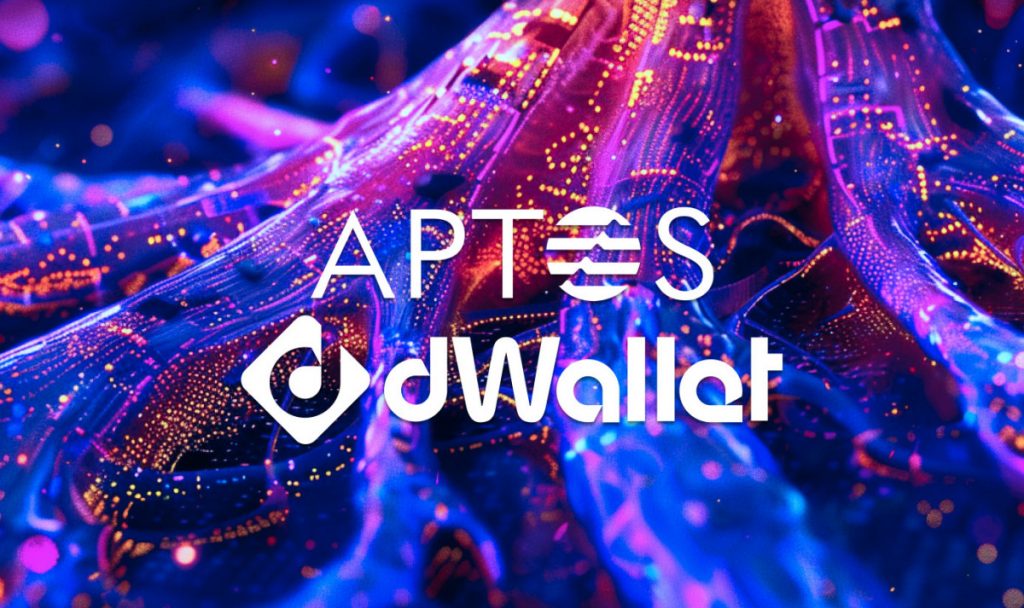dWallet Network Unveils Multi-Chain Zero Trust Protocols For DeFi And Gaming On Aptos


In Brief
The partnership will enable multi-chain transactions on Aptos, allowing users to interact with blockchains without bridging or wrapping.

Provider of infrastructure for programmable native Bitcoin, dWallet Network revealed its expansion to the Layer 1 blockchain Aptos.
Aptos functions as a Proof-of-Stake (PoS) smart contract network, leveraging the Move programming language for virtual machine (VM) transaction execution. The platform has implemented a modular approach to transaction processing, which achieves high throughput and low latency.
This integration seeks to implement dWallet Network’s Zero Trust Protocols (ZTPs) with native multi-chain interoperability into both the decentralized finance (DeFi) and gaming ecosystems on the Aptos blockchain. Leveraging dWallet’s Zero Trust architecture, these ZTPs on Aptos will facilitate smooth transaction signing across Bitcoin and Ethereum, among other blockchains, eliminating the need for bridging or wrapping.
Moreover, the collaboration with dWallet Network will enable Aptos developers to create ZTPs with native, non-collusive, and decentralized dWallets, facilitating multi-chain interactions in the Web3 ecosystem. This expansion is a notable advancement for DeFi projects on Aptos, providing them with the capability to integrate native BTC and ETH transactions.
What Is dWallet Network?
dWallet Network functions as a building block enabling control over a wide array of assets and the enforcement of diverse logic across different networks. Utilizing cryptographic signatures, a default way to authenticate blockchain networks, its dWallets generate signatures indistinguishable from regular user signatures from a network perspective.
This option also applies to non-smart contract networks like Bitcoin, facilitating the development of ZTPs that operate seamlessly across networks, aligning with Web3 principles emphasizing decentralization and user ownership.
For the implementation of the Zero Trust primitive of dWallet, the network utilizes an advanced threshold protocol called 2PC-MPC. It allows for the generation of an ECDSA signature in a noncollusive manner, requiring participation from both the end-user and a significant number of validators.
Disclaimer
In line with the Trust Project guidelines, please note that the information provided on this page is not intended to be and should not be interpreted as legal, tax, investment, financial, or any other form of advice. It is important to only invest what you can afford to lose and to seek independent financial advice if you have any doubts. For further information, we suggest referring to the terms and conditions as well as the help and support pages provided by the issuer or advertiser. MetaversePost is committed to accurate, unbiased reporting, but market conditions are subject to change without notice.
About The Author
Alisa, a dedicated journalist at the MPost, specializes in cryptocurrency, zero-knowledge proofs, investments, and the expansive realm of Web3. With a keen eye for emerging trends and technologies, she delivers comprehensive coverage to inform and engage readers in the ever-evolving landscape of digital finance.
More articles

Alisa, a dedicated journalist at the MPost, specializes in cryptocurrency, zero-knowledge proofs, investments, and the expansive realm of Web3. With a keen eye for emerging trends and technologies, she delivers comprehensive coverage to inform and engage readers in the ever-evolving landscape of digital finance.



















































